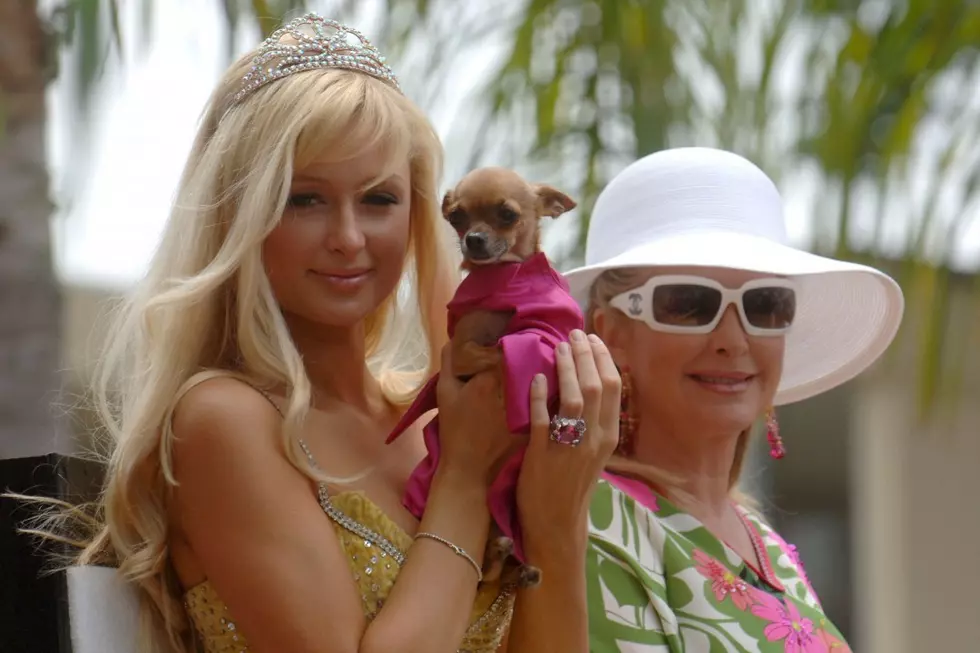
Would You Clone Your Pet?
Given the chance — and bank account — would you clone your beloved pet?
According to Newsweek, cloning pets is on the rise — especially for animal influencers, a.k.a. petfluencers.
Petfluencer Tinkerbelle the Dog, who frequently meets celebrities, currently has a paid partnership with ViaGen, one of the most popular pet cloning companies on the market. Tinkerbelle's owner even preserved the pup's DNA for potential future cloning.
Photographer Courtney Udvar-Hazy, who runs the popular Instagram account @wander_with_willow, launched the social media account in 2017 to share photos of her wolf-dog hybrid, Willow.
Just a year later, Willow escaped from a pet sitter and was hit by a car. Udvar-Hazy had the wolf-dog cloned and now owns 2-year-old Phoenix, Willow's clone. Five other genetically identical wolf-dogs were also created, which Udvar-Hazy gifted to friends.
Cloning animals isn't a new concept. The first successful cloning of an animal took place in 1996 with Dolly the sheep, according to Smithsonian magazine. The publication notes that the first successful dog cloning procedure took place in 2005.
How Does Pet Cloning Work?
Cloning a dog requires enough intact DNA from the animal as the tissue begins to degrade quickly after an animal dies. While it is sometimes possible to get enough DNA for the procedure after a pet has died, it's recommended to collect the cells prior to the animal's death. The company requires a skin and/or ear biopsy to begin the procedure.
Melain Rodriguez, client service manager at ViaGen, spoke to Input about the process.
“It's very similar to IVF,” Rodriguez explains. “The eggs and the embryos are created in a dish, and then they’re transferred into the surrogate.”
How Much Does It Cost to Clone a Pet?
According to ViaGen, it costs a whopping $50,000 for a dog to be cloned. (Got a cat you want to duplicate? It'll set you back $25,000. How about a horse? That'll cost $85,000.)
Customers often agree to the cost due to the emotions involved: “If you’ve ever had a wonderful pet that you love so much, it’s so hard to lose them. A lot of our clients are in that situation," Rodriguez says.
But for many celebrities, money is no object when it comes to preserving their favorite furry friend.
In 2016, fashion designer Diane von Furstenberg spent $100,000 to clone her Jack Rusell Terrier, Shannon.
Barbra Streisand cloned her pooch, Samantha, after the dog died in 2017. The music icon wrote an op-ed for The New York Times about her experience.
Streisand, who learned of the process after her friend did the same for her dog, hired ViaGen to take DNA from Samantha's cheek and stomach before she died. The singer wanted to clone Samantha because she “couldn’t find another curly-haired Coton." (Typically, the breed has straight hair.)
The company produced four puppies using Samantha's DNA. Streisand adopted two of the dogs — Violet and Scarlett — and gave the other two away.
Why Pet Cloning Is Controversial
Despite the rise in popularity for pet cloning, many are skeptical about the ethics behind the procedure.
For one, pet cloning is a "largely unregulated" business, according to National Geographic.
Some animal organizations, such as he Humane Society of the United States, outright oppose cloning.
"Companies that offer to clone pets profit off of distraught pet lovers by falsely promising a replica of a beloved pet. With millions of deserving dogs and cats in need of a home, pet cloning is completely unnecessary," Vicki Katrinak, the animal research issues program manager at the Human Society, told National Geographic.
Many others believe that while it may be possible to physically clone a pet on the cellular level, the "being" or essence of the animal is irreplaceable.
See some reactions toward pet cloning from Twitter:
The Weirdest Pop Culture Scams Ever
More From 96.5 KVKI










